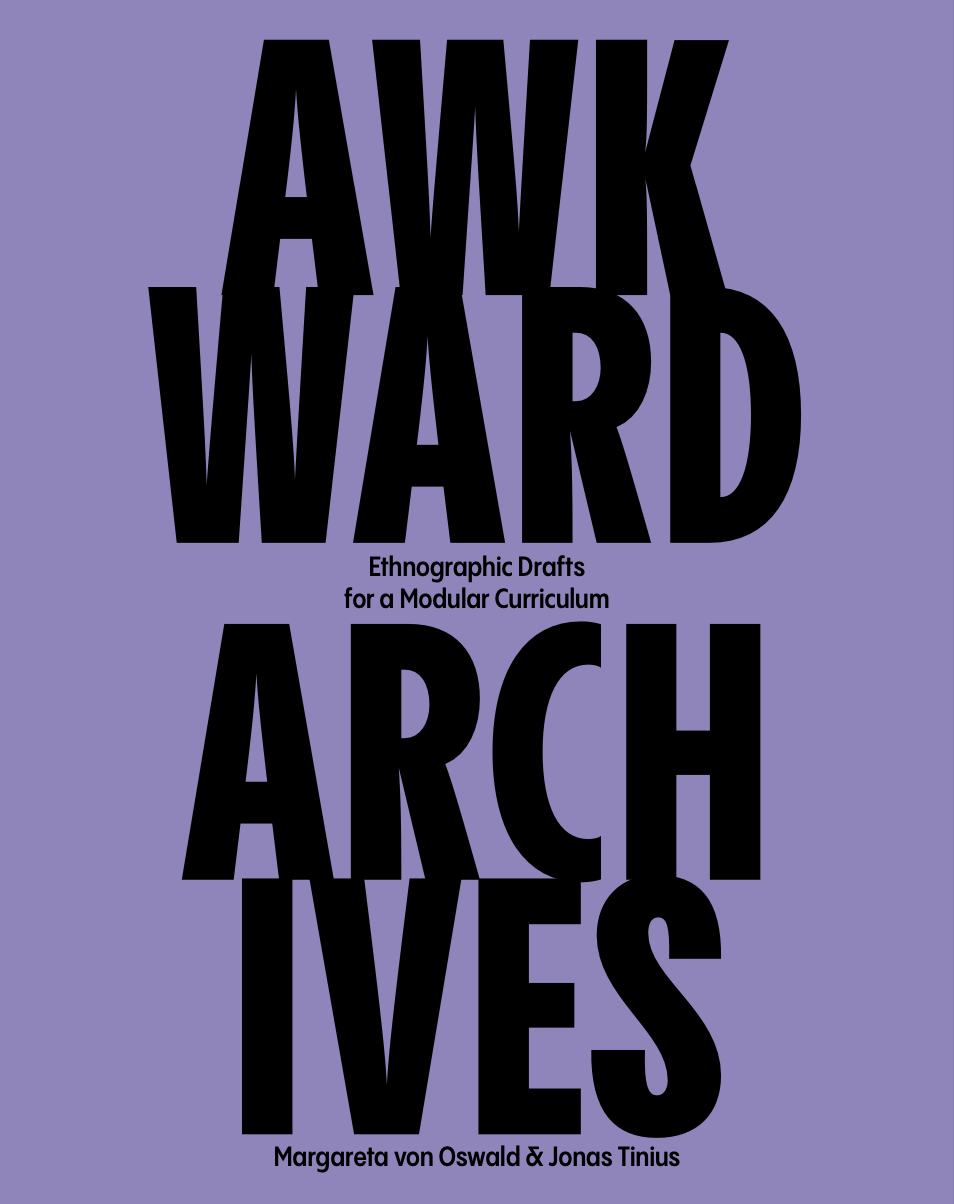
Awkward Archives proposes a manual for academic teaching and learning contexts. An ethnographic research approach is confronted with the demands of archival research as both disciplines challenge their inner logics and epistemologies. Through fieldwork and ethnographic tools and methods, both analogue and digital, the editors take various contemporary archival sites in Berlin as case studies to elaborate on controversial concepts in Western thought. Presenting as such a modular curriculum on archives in their awkwardness—with the tensions, discomfort and antagonisms they pose.
With case studies on Haus der Kulturen der Welt, the Hahne-Niehoff Archive and the Museum für Naturkunde Berlin, among others.
Please join us for the launch of a modular, teachable curriculum about awkward archives – archives that cause cause disquieting frictions and sit uncomfortably in the contemporary world. These drafts comprise a series of site-based pedagogic modules, which depart from conversations with archivists who let their unease with the archives become a productive, troubling heuristic. Each module is devised for teaching and reflection on anthropology, collections, organisations, and modalities of fieldwork.
For this iteration, the curriculum’s editors Jonas Tinius and Margareta von Oswald are joined by several contributors and interlocutors for the curriculum, in order of appearance in the book and with the archives on which spoke about with them – Bernd Scherer (formerly HKW), Lynhan Balatbat-Helbock (Colonial Neighbours Archive, SAVVY Contemporary), Hannes Hacke (Naomi Wilzig Art Collection, Humboldt-Universität zu Berlin), Yann LeGall (The Restitution of Knowledge research project – Technische Universität zu Berlin) – the editors of the Nomadic Curriculum Manual Series, Stefan Aue and Lama El Khatib, and Chiara Figone, founder and artistic director of Archive Books.
Conceived in collaboration with Archive Books and SAVVY Contemporary
